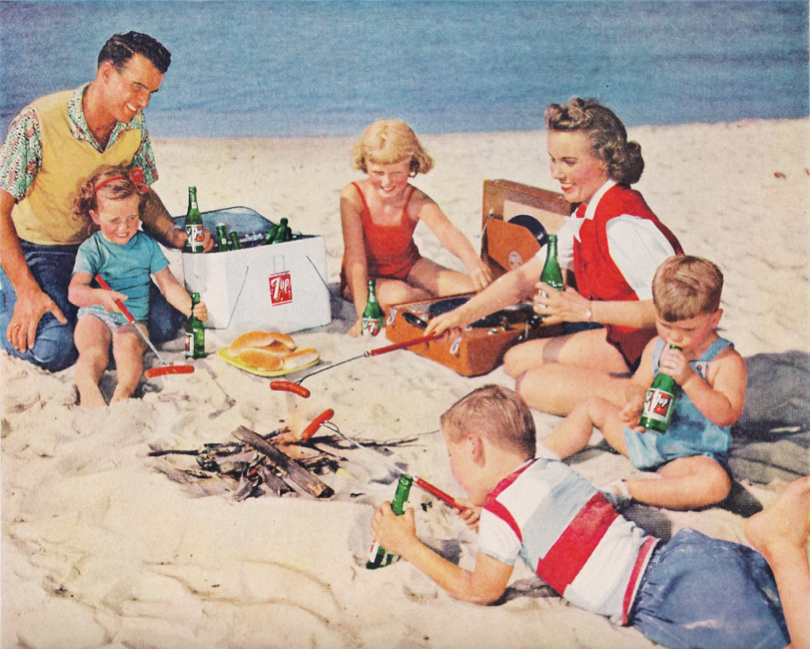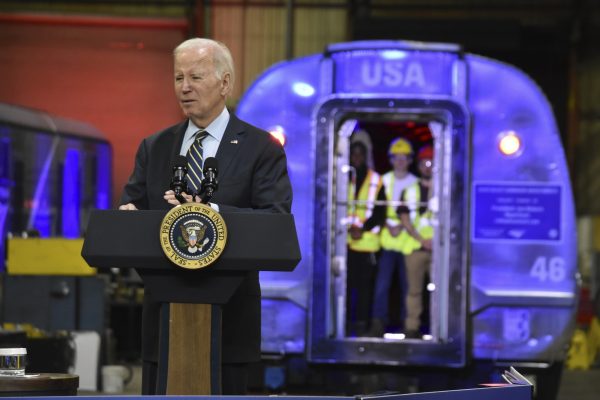Folks are sprucing up RVs, parents are packing kids’ camp gear, airlines are adding flights, and hotels are raising prices. The summer vacationers are coming.
What seems like a flood to us, however, is a trickle compared to the tsunami of holidaymakers in Europe, as anyone who has been sardined into a European train, plane, or lane at the beginning of July and August knows. On a recent summer day in Dubrovnik, I’ve been told, five cruise ships’ worth of tour groups created such a pedestrian gridlock that police had to unknot the crowd.
Americans just don’t vacation like other people do. Western European laws require at least ten and usually more than twenty days. And it’s not just the slacker Mediterranean countries. The nose-to-the-grindstone Germans and Austrians require employers to grant at least twenty paid vacation days a year. In the United States, some of us don’t get any vacation at all. Most American workers do get paid vacations from their bosses, but only twelve days on average, much less than the state-guaranteed European minimum. And even when they get vacation time, Americans often don’t use it.
Perhaps Americans are Protestant-ethic work obsessives; we are likelier than Europeans to say that we want to work more hours than we do. But this leisure gap is a recent development. In the 1960s Americans and Europeans worked about the same number of hours. Leisure time then expanded everywhere—only more slowly and much less in the United States than elsewhere, leaving today’s disparity. Some argue that high taxes in Europe discourage working, but economist Alberto Alesina and his colleagues point to legislation—that is, politics. The right to a long vacation is one of the benefits that unions and the left have in recent decades delivered to Western workers—except American ones.
Which brings us to the larger question. Just about everywhere in the West except the United States, where there is no mandatory paid time off, workers not only get vacations but also short work weeks, government health care, large pensions, high minimum wages, subsidized childcare, and so forth. Why is the United States the exception?
The answer comes in two general forms: one, Americans do not want such programs and perks because we do not want the kind of government that would legislate them. Two, Americans want them but cannot get them.
Of course, people usually want these benefits, but the question may be whether those who cannot get them on their own—working-class Americans, generally—are willing to band together and demand that government provide or require them. Or the question may be whether the system lets them do so.
Working-class Americans display relatively little of the “class consciousness” that such solidarity requires. You can see it in the votes they cast and the answers they give in surveys. About one-third of those whom sociologists would consider working-class label themselves middle-class. Even though economic inequality is substantially greater in the United States than in Europe, Americans acknowledge less economic inequality in their society than Western Europeans do in theirs, and Americans are more likely to describe such inequality as fair, deserved, and necessary. Americans typically dismiss calls for the government to narrow economic differences or intrude in the market by, say, providing housing. Working-class voters in the United States are less likely than comparable voters elsewhere to vote for the left or even to vote at all.
Where does this unusual reluctance to think in class terms come from? Some on the intellectual left talk condescendingly about “false consciousness,” the “What’s the matter with Kansas?” complaint. But “false” is the wrong adjective. “Different” is better. American workers have not been brainwashed to love their masters; they are often independent, cynical, and subversive. (“Well that foreman, he’s a regular dog, the line boss is a fool. . . . Take this job and shove it.”) They weigh considerations apart from class. One is the insistence on self-reliance, which weakens calls for class solidarity. Another is the set of moral concerns, such as “family values,” that may trump personal economic interests. And they may calculate their economic interests in ways that just don’t add up to some observers on the left.
Others point out that American class identity has always been trumped by racial identity. Plantation owners rallied poor southern whites to fight for slavery; factory owners recruited black scabs to break strikes in the north; the GOP developed a “southern strategy” to recruit white voters resentful of the Civil Rights agenda. American class exceptionalism is perhaps rooted in its slavery exceptionalism.
Yet others argue that American culture has simply been, and remains, too individualistic to allow the rise of either European-style class consciousness or the faith in big government that would allow for many of the kinds of programs that reformers have secured in other industrialized nations.
For one or more of these reasons, Americans don’t vacation because they don’t want the kind of leftist government that would legislate vacations.
The alternative answer to the vacation question is that working-class Americans do want the vacations—and the rest of the welfare state package—but are blocked by our political system.
The historical record is full of literal blockages. For example, state governors have often sent National Guard troops to shut down strikes and demonstrations. More broadly, features of American democracy itself may undercut working-class mobilization.
The first such feature to come to mind in the Super PAC era is money. Money mattered before Citizens United and it matters even more now. Legislators don’t necessarily sell their votes, as many openly did decades ago, but campaigns run on the fuel of money. Those with the most run the farthest.
How American democracy is built matters at least as much. For one, it’s unusually hard for working-class people to vote here. From about the 1830s to the 1920s, political machines made voting easy: they shepherded laborers to the polls; rewarded them with liquid refreshments, music, jobs for relatives, and sometimes cash; handed out prepared party tickets to be cast in the ballot boxes; and deployed party symbols to aid the illiterate. Good-government progressives overturned that. They developed a civil service; instituted the secret ballot; required separate-day registration, citizenship, and literacy; promoted nonpartisan local elections; and generally raised the bar for voting. These reforms and others drove turnout down to the pitiful levels of our era. No wonder, then, that American policy decisions ignore the views of working-class voters almost entirely.
Also, American democracy is built for stasis. Power is dispersed to local arenas and local elites, typically with conservative consequences. Opponents of social change can man the system’s many veto points, including the usually conservative Supreme Court. Even having a two-party system, as opposed to a multi-party one, seems to undermine working-class political influence.
The they-don’t-want-it and they-can’t-get-it views are not irreconcilable. In great measure, what people can imagine as possible, normal, or right depends on what they already have. Some of us can recall when the proposal to create Medicare was widely assailed as socialized medicine. Now few Americans can imagine a country in which the elderly go without taxpayer-provided health care. But the structural impediments to working-class action can then become impediments to working-class consciousness itself—which, in turn, makes action less likely. A tight circle of American exceptionalism.
Those who would intervene in that tight circle face a tough task, but a possible payoff. There have been breakthrough moments—the New Deal, the Great Society—when the political stars aligned. Part of the conservative resistance to Obamacare is the fear that, once running, it will come to be seen as an “entitlement,” as a right. For opponents, this is a reasonable worry. People can get used to all sorts of new rights, which then become fixed in the political system—just as Europeans expect four weeks’ vacation, no matter how crowded Dubrovnik gets.







